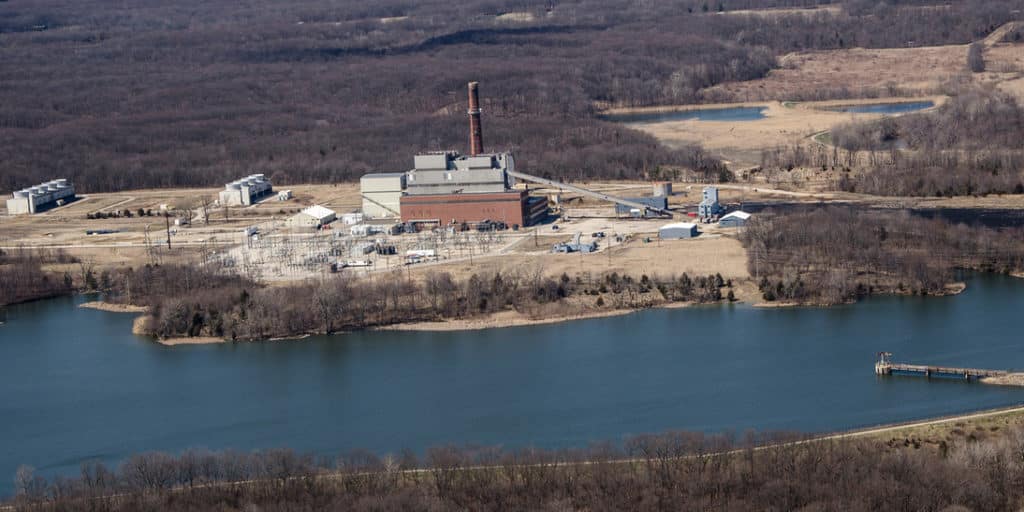FOR IMMEDIATE RELEASE

GROUNDWATER DATA SHOW DYNEGY, OTHER POWER GENERATING COMPANIES POLLUTING OUR WATER
March 14, 2018
Contact: Andrew Rehn, Prairie Rivers Network, arehn@prairierivers.org, 217-344-2371 ext. 208
CHAMPAIGN, IL – Prairie Rivers Network (PRN) has analyzed groundwater monitoring data released on March 2, 2018 by Illinois coal-fired power companies and found elevated levels of multiple contaminants, including antimony, arsenic, chromium, lead, and thallium, in exceedance of the Illinois Environmental Protect Agency Class II groundwater standards and/or U.S. Environmental Protection Agency’s drinking water standards. Data show exceedances at 15 of the 18 power plants across Illinois which reported groundwater data. These sites exceed limits on toxic chemicals in the state’s groundwater.
The EPA’s 2015 rule that regulates the disposal and storage of coal ash requires that companies test water and make their findings available to the public. PRN has analyzed over 1,000 pages of data from five coal ash owners in Illinois. Groundwater exceedances across multiple contaminants were common. One site alone had exceedances for antimony, arsenic, beryllium, boron, cadmium, chromium, cobalt, lead, lithium, radium and thallium.
Arsenic was present at levels above the drinking water standard in 14 of the 17 sites which posted arsenic data, including 500 ppb (twice the Illinois groundwater standard) at Powerton in Pekin. A well at the Waukegan Station with 9,300 ppb arsenic was labeled as upgradient but seems to have the signature markers of coal ash contamination with elevated boron.
Lead was present in 6 of the 17 sites at level as high as 340 ppb at Duck Creek Power Station in Canton, or three times the Illinois groundwater standard. The sites have radioactive material with measurements of radium at 15.2 pCi/l at the Newton Power Station in Jasper County, over three times the drinking water standard.
“Dynegy, NRG, and other owners of coal ash are required by the EPA to test the groundwater under their coal ash impoundments and report their findings,” said Andrew Rehn, PRN Water Resources Engineer. “These data clearly indicate that these companies are polluting area groundwaters. Contamination was particularly high in unlined impoundments where groundwater can flow through the coal ash. To think that in some cases these companies plan to leave these impoundments capped in place in contact with groundwater forever is ridiculous.”
The Springfield utility, City Water Light and Power, posted incomplete groundwater data, omitting measurements for arsenic, lead, and other dangerous contaminants. Every other coal ash owner in the state posted this data.
Due to a gap in the federal regulation, this groundwater monitoring data was not required at power plants closed before October 2015. However, coal ash at closed power plants poses the same threats to groundwater, such as the three coal ash pits at the Vermilion Power Station, which is contaminating the groundwater and seeping pollutants into the Middle Fork.
“The takeaway from these findings is clear,” Rehn said. “These power plants are contaminating our groundwater with toxic chemicals and harming our environment.”
Details of the exceedances at each plant are available here. Information on the harmful effects of coal ash to human health is available here.
Prairie Rivers Network (PRN) is Illinois’ advocate for clean water and healthy rivers and is the Illinois affiliate of the National Wildlife Federation. PRN advocates for cultural values, policies and practices that sustain the ecological health and biological diversity of Illinois’ water resources and aquatic ecosystems. It is a member-supported, nonprofit organization that champions clean, healthy rivers and lakes and safe drinking water to benefit the people and wildlife of Illinois.
###







